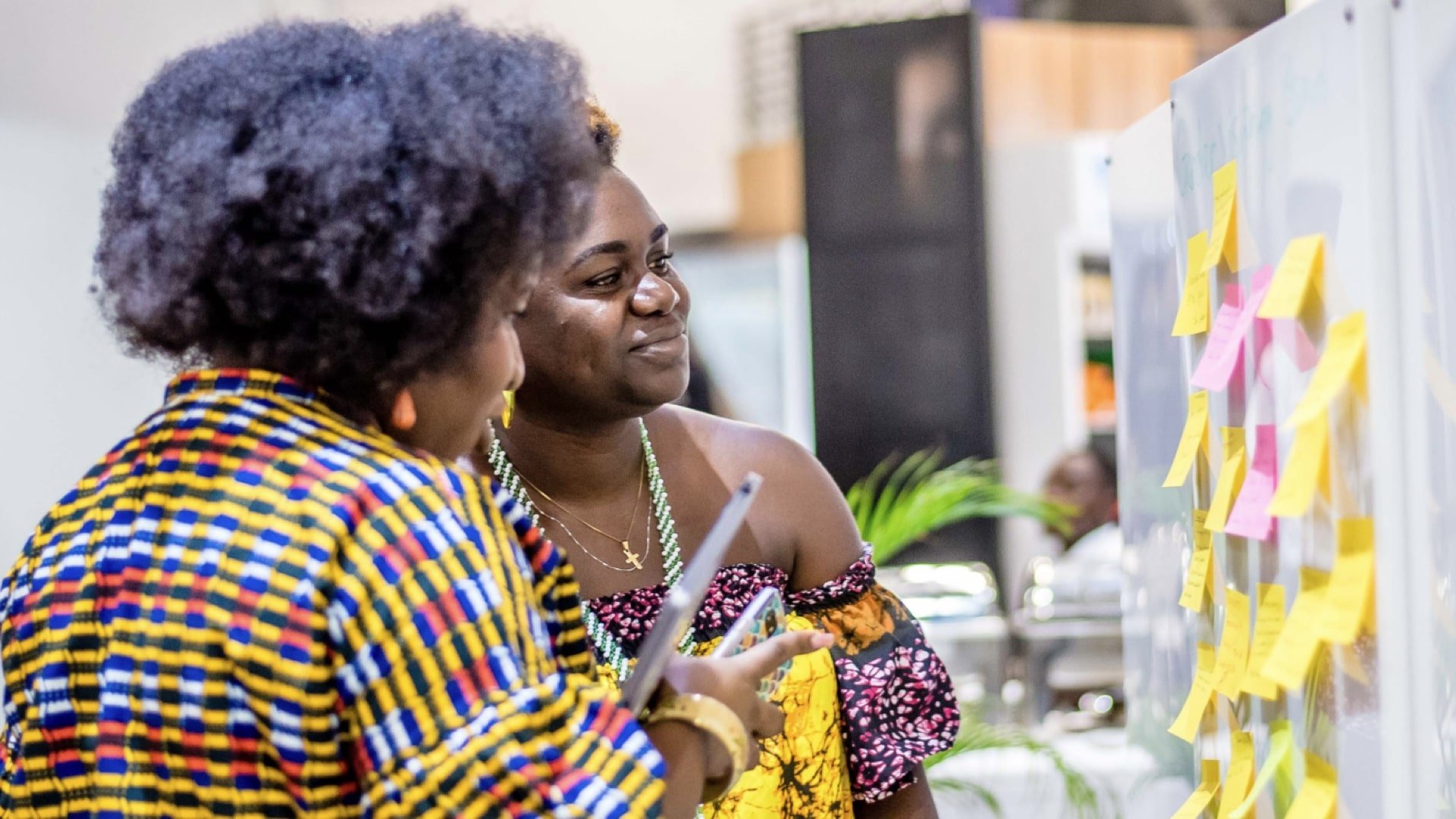
Acceleration Goals
Solving the supply pipeline via clearer acceleration goals
Based on our primary and secondary research, we have developed 15 goals to guide the evolution of African accelerators (as opposed to incubators), as indicated by Figure 26. These are clustered into 4 sections: strategic, design, delivery and management goals. We suggest greater emphasis on these areas would serve to improve how the acceleration model in Africa might better serve beneficiaries. Over time this could improve the pipeline of ventures with high-growth (and scale) potential.
Figure 26: 15 Acceleration Goals Source: Systemic Innovation

Accelerator ecosystem goals
1. Develop Africanised universal principles for acceleration, then localise:
As indicated in the preceding section, the ubiquitous Silicon Valley acceleration principles are generally not the right fit for the African context. A leading ecosystem support actor we interviewed said that the accelerator challenge is less about picking a developed market tool or framework and trying to replicate it, and more about reflecting on the underlying principles that resulted in the prevailing model.
Only once a unique suite of principles that work in Africa has been identified and agreed through a participatory and collaborative process, should we experiment with new delivery models to breathe operational life into those principles. Our view is that prioritising human-centred design enables decisions being informed by principles over process, which is an approach that has worked for some leading accelerators, such as Founders Factory Africa.
We believe that delivery models must be localised; there is no ‘African model’. There simply cannot be, in the context of Africa’s size and diversity. By ‘localise’ we mean that accelerators must be locally-led, relying on the resources, experience and expertise of in-market teams, even if linked to a global entity. As concluded in a GALI report on youth acceleration in Nigeria, “As much as it is advisable to gain insights from best practices abroad, Nigerian accelerators and incubators should also focus on tailoring programmes to meet local needs. There is also opportunity to better self-reflect and foster a culture of continual improvement by measuring impact and using this data to improve programmes.”
2. Move from general to specialised acceleration:
Compared to an edtech venture, a fintech will have a very different trajectory, needs and hurdles. Specialised acceleration and support is likely to yield much better results and impact, because programme support can be designed around the unique challenges of that industry.
“Having accelerator programmes focused on a particular sector or industry creates the capacity to build some level of specialisation tailored to the unique needs of a particular sector.” - interviewee
3. Provide a range of acceleration and scale up support models to increase reach:
It is clear from our research that the more localised, bespoke and hands-on the acceleration experience, the greater the impact. This approach is obviously a lot more expensive, and therefore not a panacea as only a few high-growth potential ventures will be selected. To increase reach, we believe that there should be a range of acceleration options that fit different needs and circumstances. Some considerations are described below.
Bespoke scale-up support services: This is the top-end, best-in-class experience, with a price tag to match. In reality, only ventures with a high probability of growth are likely to receive the funding for such interventions - the top 10 percent rather than the top 50 percent.
Specialised accelerators: These are focused on specific verticals with a range of ventures participating at different stages of growth. In reality, it is difficult to localise these models, as there is limited supply of appropriate specialised ventures in one city, with the exception perhaps of fintechs in Lagos. These accelerators must ensure that their programmes are inclusive, especially for those participants located in other parts of the country or continent, and should therefore be online. Where physical meetups occur, donors must ensure that there is sufficient funding to ensure participation of all cohort members, not just those who are physically located in the city in which the accelerator is based. We believe that some existing generic accelerators could pivot their offerings, which might also broaden their funding options so they are less reliant on grant funding, which, thus far, has tended to throttle African innovation rather than catalyse it.
Online scale-up academy model: There is a market for a fee-based, affordable scale-up academy where start-ups can access scaling-related knowledge and training on a pull rather than push basis (i.e. with algorithmically-personalised recommended curriculums based on the assessed individual needs of the business, but also allowing ventures to pick and choose when and which areas they require support). The model would include mentoring and coaching in high-impact, short sessions, so as to maximise the benefits of expert time but maintain affordability. Ventures would have the option of additional expert support as needed, at an additional fee. The model would also focus on training thinking, changing mindsets and improving cognitive and soft skills generally, which are generally under-developed in the African contexts as a result of outdated national education systems.
Scaling knowledge centre: There is a need for a one-stop-shop online scaling knowledge centre, with its own full-time project manager who keeps it updated and dynamic, and leads on proactive engagement and coordination within the ecosystem. This model would build on some of the existing initiatives developed by a few champion individual stakeholders in their spare time, and should be funded through development or philanthropic funding, as it serves the ventures least likely to secure investment and support. As indicated by one of our interviewees, “What could be made better is providing more free, higher quality resources, not just for those that can afford to go through the accelerator programmes. Make knowledge easy to understand and digest, and a lot more easily accessible for entrepreneurs.”
Highly localised incubators and hubs: These entities, of which there are hundreds in Africa, would continue to serve local entrepreneurs who have a great idea for a local SME, or who are in the earliest stages of their business development. Incubation models have their role, especially bearing in mind that many young African entrepreneurs are excluded from the ecosystem because of no internet or computer access, language barriers and other contextual obstacles. We believe though that these entities are not appropriate vehicles to support scaling ventures (and should be strongly dissuaded from falsely labelling their support activities as ‘scaling’ offers).
4. Ensure accelerators are fully integrated into the wider scaling ecosystem:
As highlighted by Briter Bridges and AfriLabs, startup ecosystems don’t thrive in silos - they must work with the ecosystem. Better coordination is needed across the ecosystem at the accelerator level (as opposed to the representative level, which is supported by organisations like AfriLabs). Entrepreneurs should be able to move fluidly through the support ecosystem as they grow. For example, accelerators need to connect more effectively to locally-active investors and pre-incubation services (such as through a university).

Programme design goals
5. Move away from one-size-fits-all approaches:
Accelerators have tended to be reactive, rather than purposeful. As an interviewee pointed out, “They don't really think deeply about individuals, they think of them as batches: cohort one, cohort two, etc.” Most accelerators are wedded to their fixed hard skill content, and are not approaching acceleration in an agile manner. As a leading accelerator interviewee said to us:
“Different businesses and founders need different things. The reason that our model is set up and positioned as it is is to help founders and their ventures identify their unique challenges and develop unique solutions. We leverage pattern recognition and principles and toolkits, but don't have a one-size-fits-all toolkit or framework. Each challenge is unique.” - interviewee
6. Co-create programmes:
Best practices in programme delivery include co-creating programmes with stakeholders and developing incentives for ventures. Co-creation with local communities ensures that the content is tailored to the realities of their markets.
7. Sequence support and provide the right support at the right time:
Different instruments and forms of support have different levels of impact and relevance at different stages of the scaling pathway. An effective sequencing of actions is therefore important to enhance the likelihood of scale and sustainability being achieved. As we have said before, we subscribe to the view that scale-ups are better served when they pull the knowledge and training they need at the time they need it, rather than a fixed curriculum being pushed on them. Batching is inefficient unless the whole cohort needs the same support at the same time.
“The content is not what makes any of these programmes special. It’s not as if we have a secret sauce for how to do a value proposition canvas. The value is more about the advice of when you need to do it, and it's the mentorship and the guidance. That's really the IP of a startup support programme. Some partners that we've chatted to are territorial about their IP. But for me, the content is not IP. What is IP is how you tie that content together.” - interviewee
“Assessing problems - as they come by them - and being able to access information to help them think about these specific problems in different ways, to provide solutions, could revolutionise acceleration.” - interviewee
8. Prioritise programme deliverables over process (outcomes, not outputs):
Create clear deliverables, not processes. Set clear targets for the business’ stage and then offer an array of tools on how to get there.
“The Y Combinator model, or TechStars model (which I've been through), is very much designed to find 10 entrepreneurs that are raising about the same amount of capital at the same stage of stage of business that need very similar type of support. And the cookie cutter accelerator model absolutely works for them. But it just doesn't work in our context.” - interviewee
9. Provide post-programme support in the form of post-investment technical assistance:
Accelerators were designed in thriving Western startup ecosystems. They’re a 3 month slice that is both preceded and followed by a lot of funding and support in their markets. The African ecosystem doesn’t have the support before, or competitive funding after the programme, to sustain the same model. As Founders Factory Africa’s Roger Norton says, “The accelerators become islands of activity followed by lots of frustration.”
“They receive all the support for six months, and then suddenly the programme ends, and they've got these critical gaps in their core team.” - interviewee

Programme delivery goals
10. Provide high quality guidance, coaching and mentorship by experienced locals:
Connections to skilled role models with whom they can relate is especially important for young founders without much experience. As is providing support tailored to the needs, type and make-up of the venture. Endeavor’s closed-network mentoring model links founders to other founders in their portfolio from the same local ecosystem. If such matching is not possible, Endeavor provides a combination of mentoring from local successful business leaders (e.g. of a large local corporate) and linking to founders in other countries in the same industry. Few organisations have the stature, network and reach of Endeavor, but it’s a model to which others should aspire by tweaking it to accommodate available resources.
“Leverage a network of advisers (who are experienced industry executives and experienced founders) to add in strategic value and domain expertise; and make sure that the advisory services are grounded in the realities and nuances of the different value chains that exist across different sectors and markets on the continent. This also involves hiring skill-sets in the support team which know how to build businesses, how to grow businesses, and to help founders on the entire journey.” - interviewee
“With a lot of incubators and mentors, some of those commercial skills are not there. Nor market access and deep market understanding. Not at the levels to be able to differentiate at the global scale.” - interviewee
11. Build the hard and soft skills required to scale a business, not start a business:
Analyses suggest that while the typical accelerator can help low-productivity businesses make very slight improvements, many are unequipped to identify or assist ventures to scale. Whilst hard skills development in areas such as governance, legal standards, accounting and M&E are necessary, this is the easy part. What’s much harder is retraining thinking, and developing cognitive skills like critical thinking, as well as leadership skills. Mindset shifts are also important: accelerators can provide a safe space that encourages a shift in the mindset of seeing failures – and the sharing of these failures – as learning opportunities: a challenge within the tech-startup world given startups must fundamentally prove success to gain additional support, and encourage a culture of collaboration rather than competition.
12. Focus on the commercial value of non-financial support:
Shifting the mindset away from solely direct funding to the additional benefits that these programmes provide will also help reorient entrepreneurs to focus on the value of non-financial support.

Management goals
13. Improve financial sustainability:
Accelerators’ focus should be on refining their approach in order to achieve financial sustainability and less dependence on donors. Accelerators with diverse models prove more shock-resilient and sustainable. Opportunities for improved sustainability include exploring corporate partnerships.
14. Develop and maximise the benefits of strategic partnerships:
Accelerators should continuously develop and nurture government and private partnerships, to ensure they receive the capacity building support government, academia and other capacity-building organisations provide.
15. Improve data collection and M&E:
One of the reasons accelerators are underfunded is that they cannot prove quantifiable impact, as they are not collecting, tracking and analysing data on a continuous and regular basis. If an accelerator can articulate value and impact through improved quality measurement and evaluation, they will attract more funding. It’s a no-brainer.
“The focus really needs to be around ‘are you collecting metrics which help you make better decisions about the support you're providing’? That helps the ecosystem because they're actually collecting data which informs their strategy. I found that they generally do not.” - interviewee


